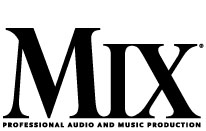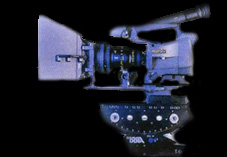 The Education Option
The Education Option
Although there have historically been two schools of thought about audio education — on-the-job vs. academic training — the lines are blurring because a slew of successful programs now offer much more hands-on experience. Despite the need for a thorough understanding of theory, ours is still an industry that relies heavily on mentoring, real-life experience and technical expertise.
We can divide the learning process into three stages: choosing an education program, augmenting it with an internship or work-study program and finding an appropriate entry-level position to suit individual needs. Ideally, professional contacts and hard work will ensure that one step leads to the next.
Audio education options range from stand-alone intensive seminars, one- and two-year audio programs offered at secondary institutions and private schools, undergraduate and graduate university programs in sound recording and music technology and doctoral programs for those interested in scientific research and academia. All of these have a place in this industry, but prospective students need to shop around, research and decide how to proceed. Keep in mind that expensive programs don't necessarily mean a better education.
WHAT DISTINGUISHES A GOOD PROGRAM?
The best audio programs may be those that are based within another discipline; i.e., within a Music, Science or Electrical Engineering degree or diploma. Great programs often have an appropriate combination of all three subject matters as they relate to audio. Such programs, in contrast with stand-alone audio programs, offer a wider education, both technically and aesthetically.
Programs offering more studio time to a smaller number of students are obviously attractive. Quality of instruction is critically important: The curriculum, synergy of the program and, specifically, the faculty, staff and adjunct faculty from the professional industry are more important than having extravagant facilities and expensive equipment. Beware of programs that don't teach audio fundamentals or those that don't offer recording of live musicians in acoustic spaces. .
Whether you are planning to be a recording engineer, mastering engineer, producer, editor, film score mixer or sound designer, the best foundation is learning how to listen. There are no shortcuts. The best starting point is simply to practice recording many instruments with many types of microphones in a concert hall or a studio (a skill set previously only found in a classical Tonmeister education). The practice of acoustic recording can lead to the development of technical and musical ear training, along with improved communication and people skills. This kind of experimentation and practice is something that is hard to get once you have a job and paying clients.
Of course, an audio education need not be solely in music recording or audio for picture. Job possibilities in audio are growing in unexpected areas such as game audio, car audio and Internet audio.
BENEFITS OF AN INTERNSHIP
Reading texts, journals and magazines are extremely important, but it is through practice and mentoring that budding engineers can refine their skills. Working closely with peers and clients in internship programs will provide the opportunity to refine people skills. An internship also offers the opportunity to really discover your strengths and refine your technical skills. Internship or work-study positions have led to great contacts in the industry for many students who have gone on to work in a variety of jobs.
AUGMENTING YOUR OPPORTUNITIES
Lifelong learning is the basis for any career, a unique learning environment in which students and professionals in all areas of audio can pursue personal and professional development, discuss applied research, and share ideas and experiences. In addition to being devoted exclusively to audio technology (with greatly reduced rates for students), the valuable institution for all students is to find mentors when attending conventions and participating in international student recording competitions and education events. Students can also acquire new technical expertise by attending a growing number of tutorials and workshops, in addition to papers and exhibitor's seminars. Through participation, both online and through conventions, one can develop lifelong contacts in the industry.
A successful audio education continues to rely heavily on mentoring and hands-on skills. Finding an appropriate school, gaining experience through an internship program and participating in professional organizations can provide you with a much broader education and contacts that will lead to better job possibilities.



